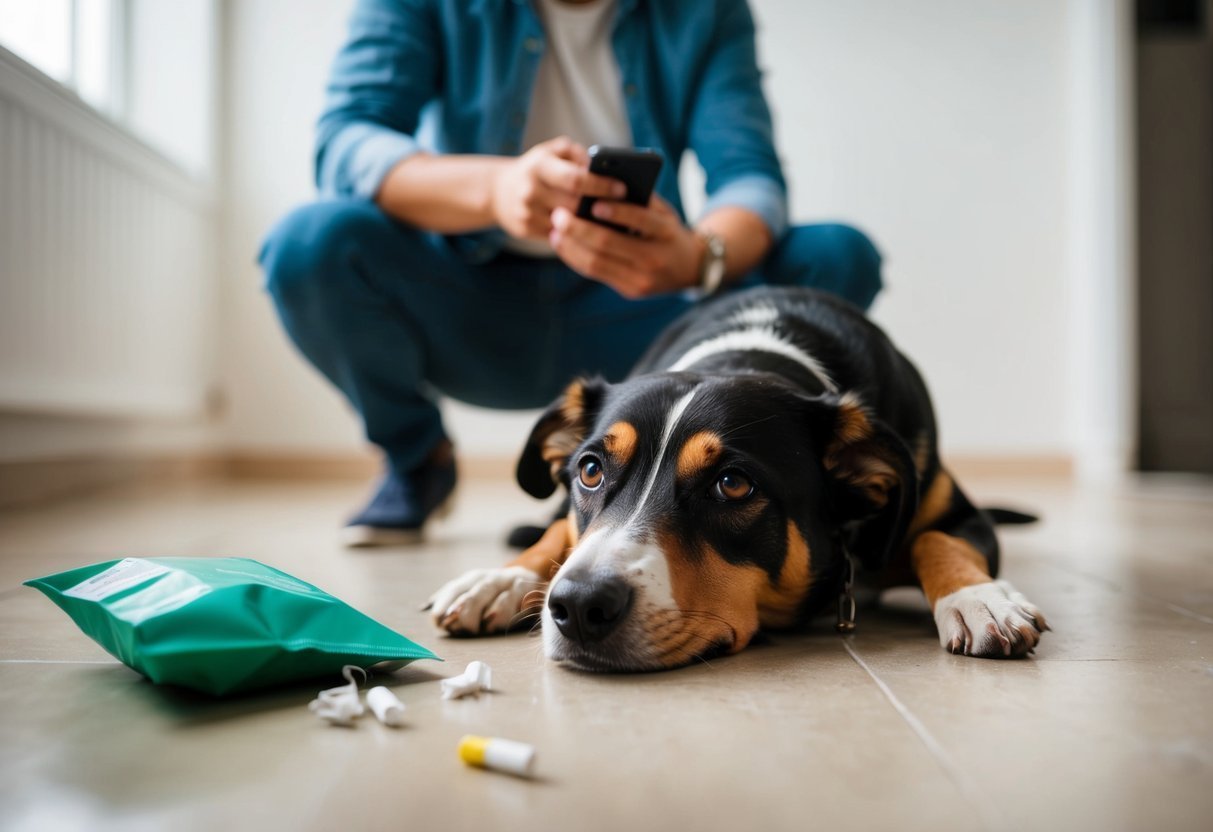If your dog has eaten a nicotine pouch, it’s important to act quickly. Knowing what to do in this situation can make a big difference in your dog’s health and safety. Nicotine is toxic to dogs and can cause serious health issues, so time is of the essence.
In this article, you’ll find six critical actions to take if your furry friend gets into a nicotine pouch.
Each step is designed to help you manage the situation effectively and ensure your dog gets the care it needs.
Stay calm and remember that prompt action is key.
1) Call your vet immediately
If your dog has eaten a nicotine pouch, your first step is to call your vet right away.
Time is of the essence when dealing with nicotine poisoning.
Don’t wait for symptoms to show up.
Nicotine can cause serious health issues quickly.
The sooner your dog gets help, the better.
When you call, be prepared to give your vet details like your dog’s size, age, and the type of pouch ingested.
This information can help the vet assess the situation faster.
Your vet might recommend bringing your dog in for an examination.
They may also suggest treatments that can help, like inducing vomiting or administering activated charcoal.
Stay calm during the call.
Your vet is experienced in handling emergencies, and they will guide you on the best steps to take next.
2) Do not induce vomiting
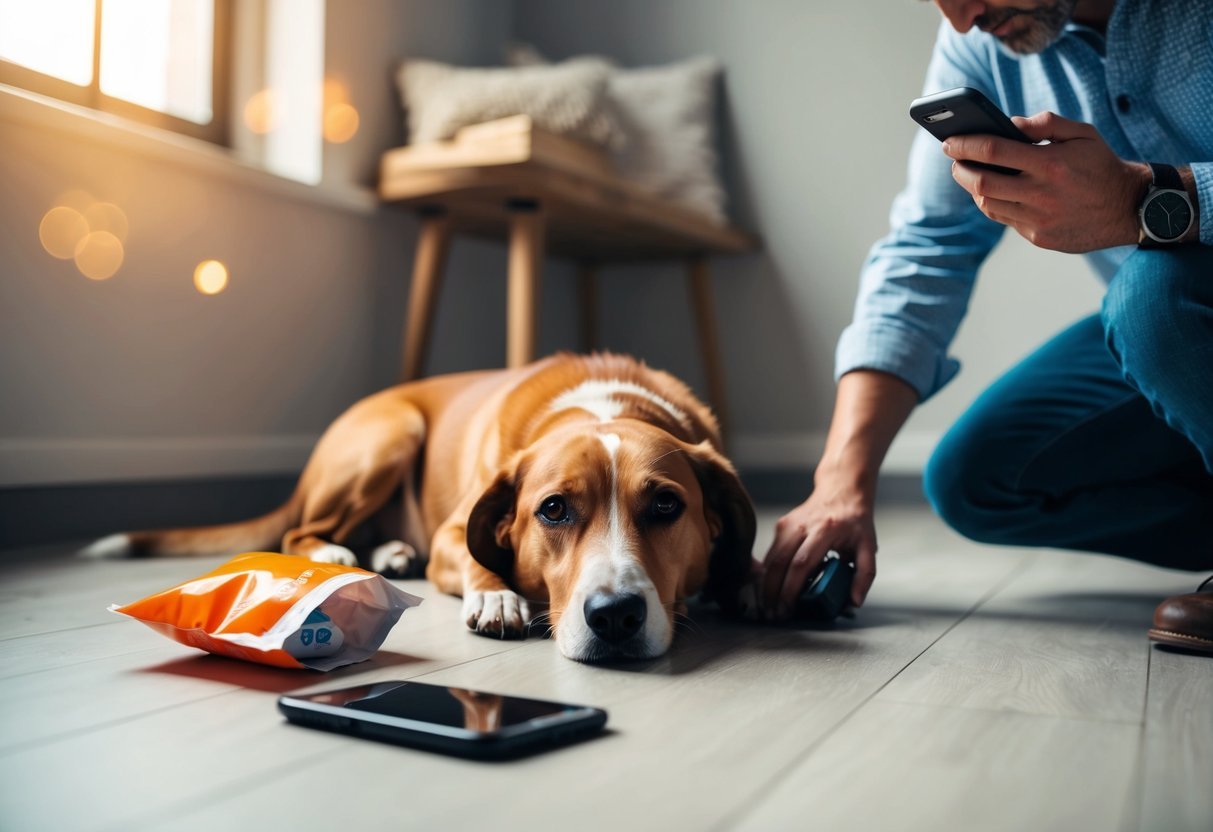
If your dog eats a nicotine pouch, you might think about making them vomit.
However, it’s best not to do this unless your vet tells you to.
Inducing vomiting can sometimes make things worse.
Nicotine is absorbed quickly, and you might not get it out of their system in time.
Your dog could also choke or have other problems if you try to make them throw up.
Just keep them calm and monitor their symptoms instead.
It’s important to get your vet involved right away.
They can give you specific advice based on your dog’s size and the amount of nicotine they ate.
Always keep the packaging of the nicotine pouch handy.
This will help the vet understand how much nicotine your dog may have ingested.
Remove remaining nicotine pouches

If your dog has eaten a nicotine pouch, the first step is to clear the area of any other pouches.
Dogs are curious and might go after what’s nearby.
Check your home for any leftover pouches.
This includes pouches in bags or containers that your dog could reach.
Keeping your dog safe is the priority.
Remove all nicotine pouches immediately.
Dispose of them in a place where your dog can’t access them.
This helps prevent any further risks.
Think about what else might contain nicotine.
Items like cigarettes, e-cigarettes, or even some gums can be harmful.
Make sure these are out of reach too.
Taking these steps can minimize the danger to your dog.
It shows you’re acting quickly to keep them safe.
After securing the area, reach out to your vet for guidance.
Monitor for symptoms
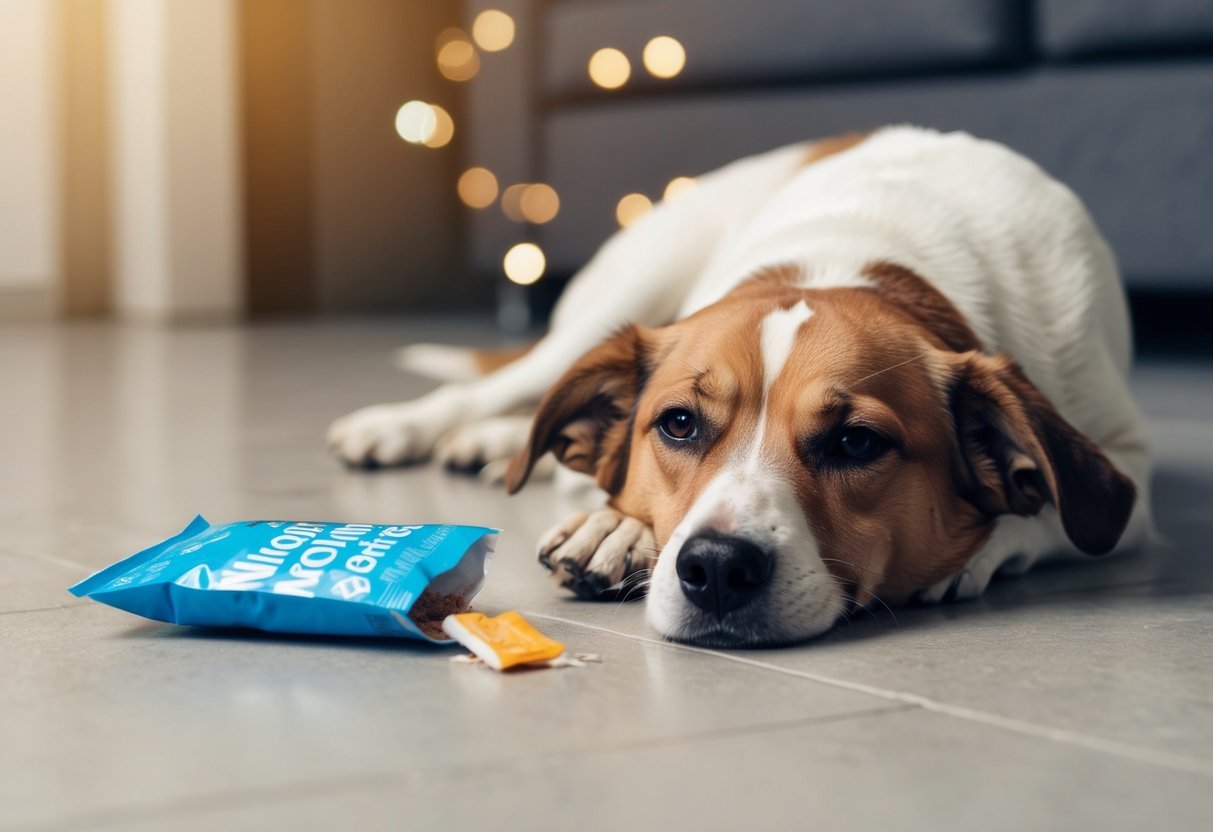
After your dog eats a nicotine pouch, it’s important to keep a close eye on them.
Look for any unusual behavior or health changes.
Common signs of nicotine poisoning include vomiting, diarrhea, and increased drooling.
If you notice any of these symptoms, take them seriously.
You should also watch for signs like a racing heart, tremors, or seizures.
These can indicate that your dog is in more serious trouble.
Make sure to check in with your dog regularly.
Sometimes symptoms can appear quickly, so staying alert is key.
If you see any symptoms, contact your vet right away.
They can provide the best advice based on your dog’s condition.
Monitoring your dog closely will help you catch any potential issues early.
This can make a big difference in their health and recovery.
5) Check Your Dog’s Weight
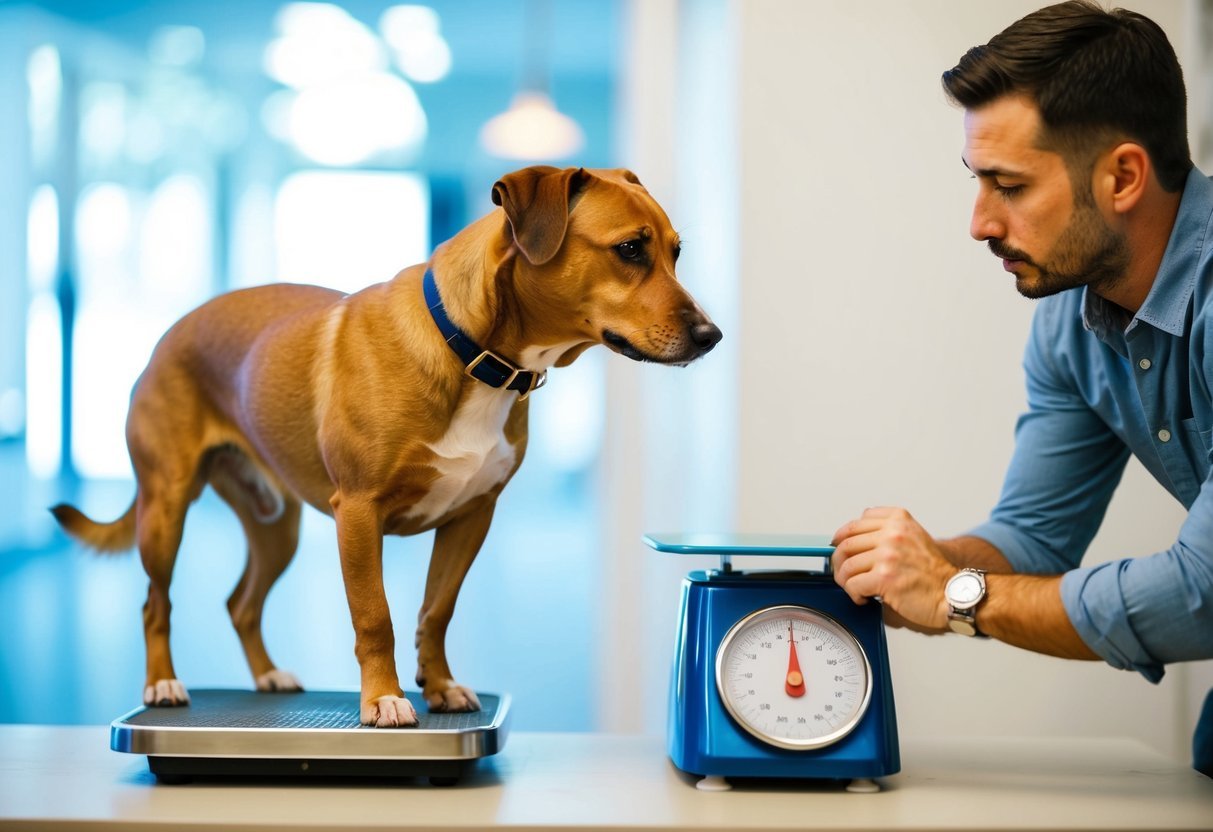
Knowing your dog’s weight is important in this situation.
It helps your vet determine how much nicotine they might have ingested and the potential risks involved.
You can weigh your dog at home using a scale.
If you have a small dog, you might be able to weigh yourself while holding them and then subtract your weight.
For larger dogs, use a scale designed for pets.
Once you have your dog’s weight, share this information with your vet when you call.
They will use it to assess the severity of the situation.
Understanding your dog’s size can help in deciding the right course of action.
Small dogs are often more sensitive to toxins than larger breeds.
This information is crucial for getting your dog the care they need quickly.
In cases of nicotine exposure, every bit of detail matters.
So, take a moment to check that weight before you reach out to your vet.
6) Provide fresh water
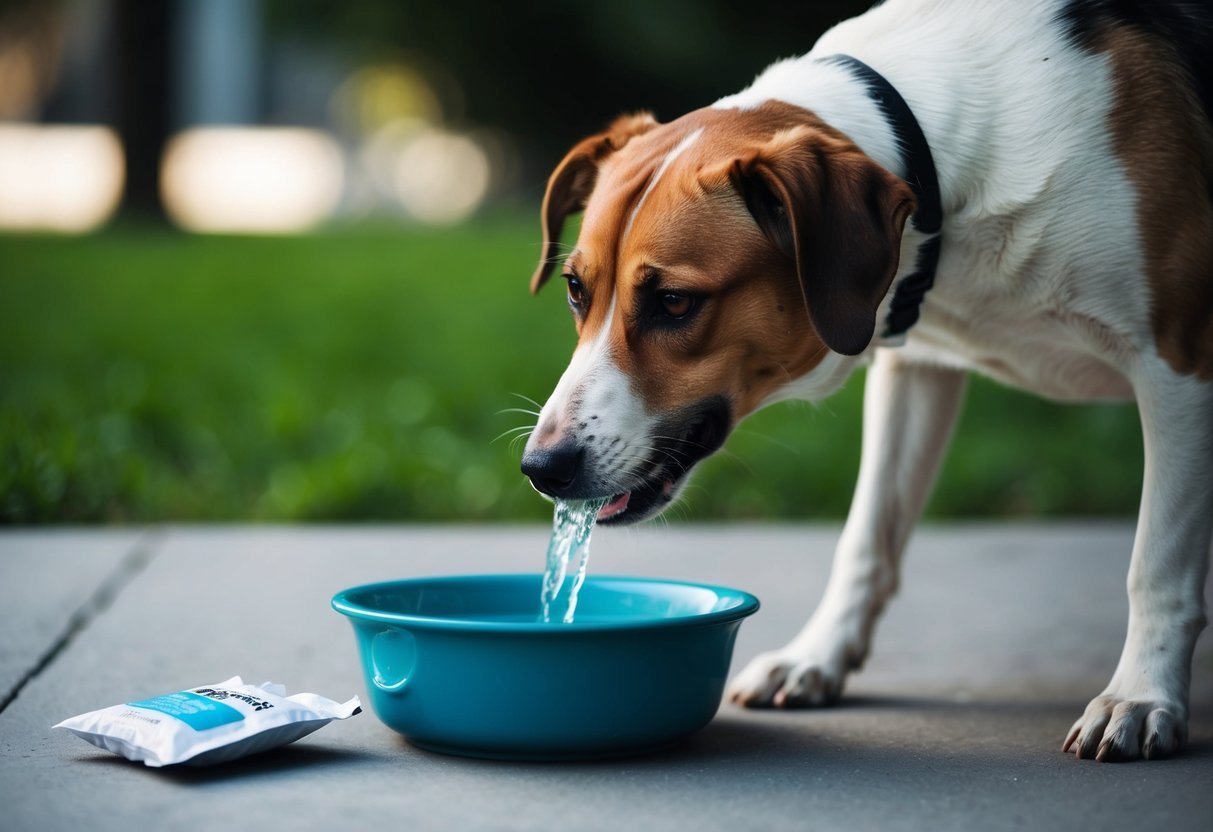
If your dog has eaten a nicotine pouch, it’s important to offer them fresh water.
Keeping them hydrated can help flush toxins from their system.
Make sure the water is easily accessible.
Dogs may feel unwell after ingesting nicotine, and they might not drink as much as usual.
You can encourage them to drink by offering small amounts frequently.
If your dog refuses to drink, try adding a little low-sodium broth to the water.
This can make it more appealing.
Watch for signs of dehydration.
Symptoms can include dry gums, excessive panting, or lethargy.
If you notice these signs, contact your vet right away.
Fresh water is a simple yet effective way to support your dog’s recovery.
Keep filling their bowl and check in on them regularly.
Understanding Nicotine Pouches
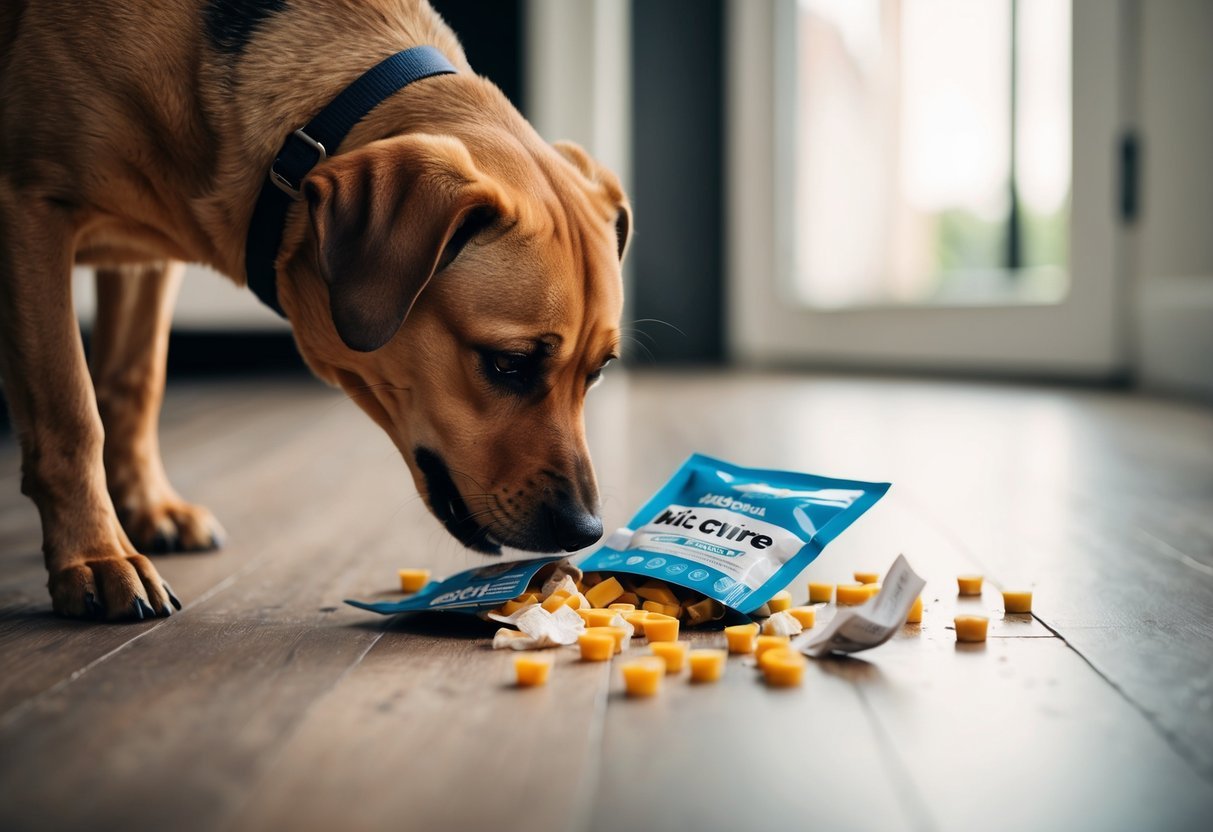
Nicotine pouches have become popular as a smokeless way to use nicotine.
However, they pose serious risks, especially for dogs.
Here’s what you need to know about these products and their dangers.
What Are Nicotine Pouches?
Nicotine pouches are small, white packets that contain nicotine but no tobacco.
They are often marketed as a way to help people quit smoking.
You place one pouch between your gum and lip, and the nicotine is absorbed through the lining of your mouth.
These pouches can come in various flavors, making them appealing to users.
Each pouch typically contains 2 to 7 mg of nicotine.
While they may seem harmless, they are not safe for pets.
Why Are They Dangerous for Dogs?
Nicotine is highly toxic to dogs.
Even a small amount can lead to serious health issues.
Symptoms of nicotine poisoning in dogs can include drooling, vomiting, tremors, and increased heart rate.
The lethal dose can range from 20 to 100 mg for dogs, depending on their size and weight.
If your dog eats a nicotine pouch, they could ingest enough nicotine to be at risk.
Always seek immediate veterinary help if this happens.
Quick action can make a big difference in your dog’s health.
Immediate Steps to Take
If your dog has eaten a nicotine pouch, it’s essential to act quickly.
Recognizing the signs of nicotine poisoning and knowing when to contact your veterinarian can make a big difference in your dog’s health and safety.
Recognizing Signs of Nicotine Poisoning
Nicotine poisoning can happen quickly, so watch for these common symptoms:
- Vomiting
- Drooling
- Tremors
- Increased heart rate
- Weakness or lethargy
These signs can start appearing within minutes, depending on how much nicotine your dog consumed.
For small dogs, serious issues can arise even with a small amount.
If you observe any of these symptoms, it’s a clear indication that your dog may be in trouble.
Keep a close eye on their behavior and act fast if things seem off.
When to Call the Vet
You should call your vet immediately if you suspect your dog has ingested a nicotine pouch.
Time is critical.
Don’t wait for symptoms to appear if you know they ate one.
Your veterinarian will assess the situation based on your dog’s size, weight, and health history.
If possible, provide details like:
- The size of the pouch
- How much nicotine it contained
- Any symptoms you’ve noticed
This information will help your vet decide on the best course of treatment, which may include inducing vomiting or administering activated charcoal to prevent further absorption of nicotine.
Frequently Asked Questions
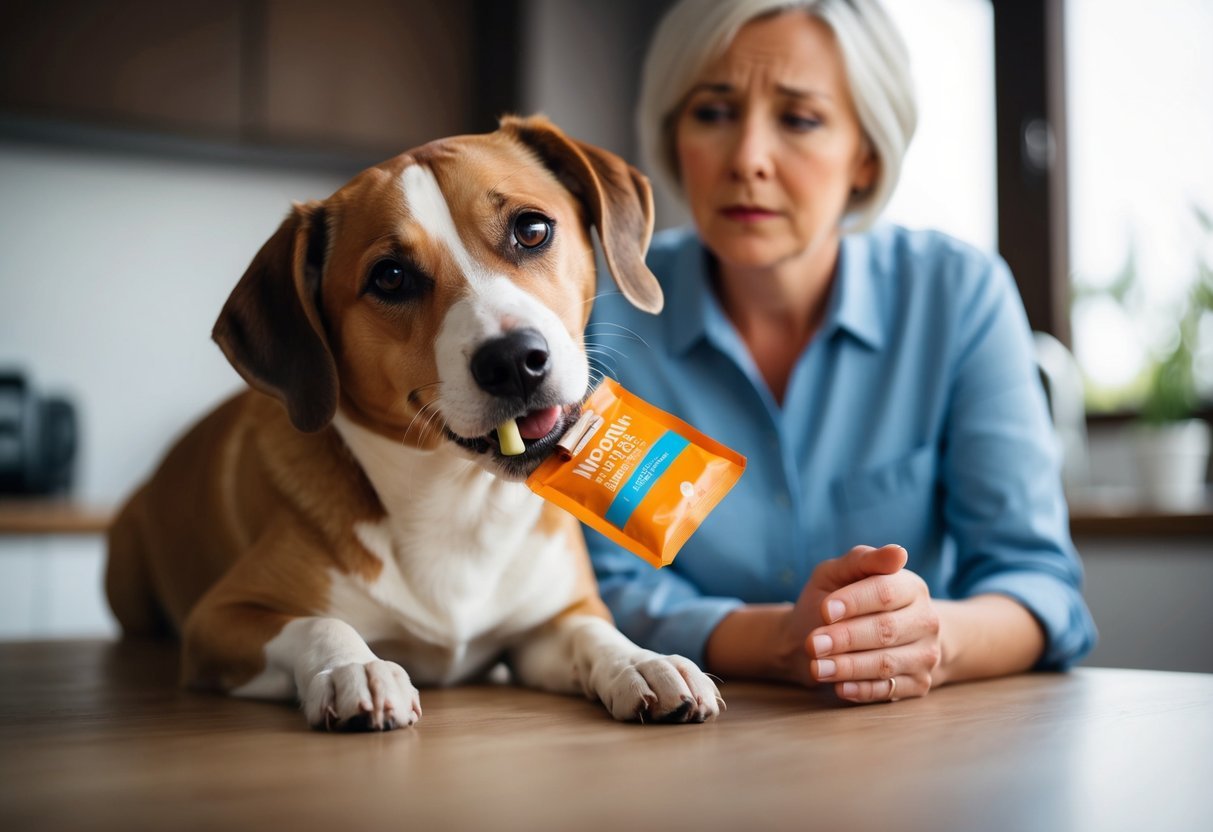
Here are some common concerns pet owners have when their dog eats a nicotine pouch.
Understanding the signs and what actions to take can make a big difference in your dog’s health.
What are the signs to watch for if my dog might have nicotine poisoning?
Watch for symptoms like drooling, vomiting, and diarrhea.
Other signs include agitation, lethargy, increased heart rate, tremors, and muscle weakness.
If you notice any of these signs, contact your veterinarian right away.
How quickly do symptoms of nicotine poisoning appear in dogs?
Symptoms can show up within 15 minutes to a few hours after ingestion.
The quicker you act, the better your dog’s chances of recovery.
Prompt action is key.
Can my dog get sick from eating a used nicotine pouch?
Yes, used nicotine pouches can be very harmful.
The nicotine residue remains toxic and can lead to serious health issues.
It’s crucial to act quickly if your dog consumes one.
What should I do immediately if my dog ingests a nicotine pod?
First, call your vet right away.
Do not try to induce vomiting unless your vet advises it.
Remove any remaining nicotine pouches to prevent further ingestion.
Is it possible for a dog to be fine after eating a cigarette?
While some dogs may not show immediate symptoms, nicotine can still be toxic.
Even if your dog seems okay initially, they could develop problems later.
Always seek veterinary advice after ingestion.
How do you treat a dog at home if they have nicotine poisoning?
Unfortunately, at-home treatment is not recommended.
It’s best to seek professional veterinary care.
Treatment may involve inducing vomiting at the vet’s office or providing supportive care depending on the severity.

